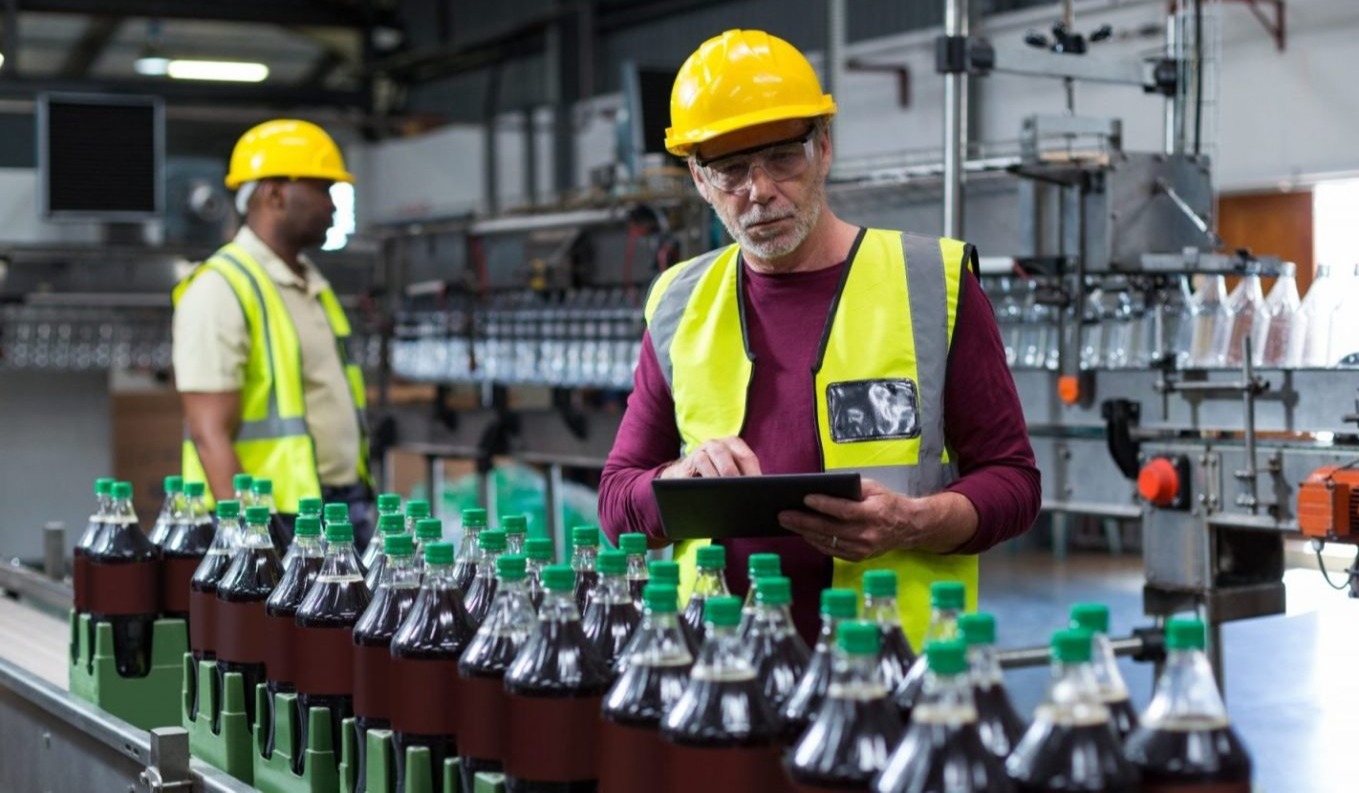1 min read
IoT for Industrial Automation
The Internet of Things (IoT) is providing a major boost to the automation sector. Industrial automation firms that employ IoT solutions can benefit...
3 min read
![]() The InCentrik Team
Oct 12, 2022 9:54:49 AM
The InCentrik Team
Oct 12, 2022 9:54:49 AM

Industry 4.0 is the term used to describe the fourth industrial revolution. It is the fusion of physical and digital technologies that are transforming manufacturing. Industry 4.0 is also sometimes referred to as the Internet of Things (IoT), smart manufacturing, or digital manufacturing.
Digital transformation is pivotal to Industry 4.0. By definition, digital transformation is the integration of digital technology into all areas of a business, resulting in fundamental changes to how businesses operate and deliver value to customers. It’s also a cultural change that requires organizations to challenge assumptions and rethink processes.
Digital transformation is enabling manufacturing companies to achieve unprecedented levels of agility, efficiency, and quality. And, it’s driving a new era of innovation in the manufacturing sector.
In this article, we’ll explore how digital transformation is revolutionizing Industry 4.0 in manufacturing. We’ll discuss some of the key technologies that are driving this transformation and explore some real-world examples of how manufacturers are using these technologies to improve their operations.

The term Industry 4.0 was first coined in 2011 by a group of German academics and has since become the leading framework for the fourth industrial revolution. Industry 4.0 is the integration of physical and digital technologies in manufacturing.
It’s sometimes referred to as the “smart factory” or the “factory of the future.” Industry 4.0 is transforming manufacturing by enabling more data-driven decision-making, greater customization, and faster production times.
There are several key technologies that are driving digital transformation in manufacturing. These include:
Cloud computing is providing manufacturers with the agility and scalability they need to respond quickly to changing market conditions. It’s also enabling manufacturers to connect disparate systems and data sources, making it possible to collect and analyze data in real-time.
Big data and analytics are giving manufacturers the insights they need to optimize operations, reduce costs, and improve quality. Manufacturers are using data to improve forecasting, streamline production processes, and develop new products and services.
The IoT is connecting devices, machines, and people in the manufacturing process (with the help of machine data integration). This is enabling manufacturers to collect data from the shop floor and use it to improve decision-making, identify issues early, and prevent downtime.
Robotics and artificial intelligence (also known as automated machines) are being used in manufacturing to automate repetitive tasks, improve quality control, and increase throughput. Manufacturers are also using these technologies to develop new products and services - along with Manufacturing Execution Systems (MES).
Data traceability is the capability to follow the journey of a product or component from its source, through its history, to its final destination, often achieved via unique identifiers like barcodes, serial numbers, or RFID tags. This critical information enables manufacturers to manage their supply chains effectively, guaranteeing product quality, regulatory compliance, and facilitating effortless recalls when required.
In addition to the key technologies mentioned above, there are a number of advanced manufacturing technologies that are driving digital transformation in manufacturing. These include:
3D printing is being used in manufacturing to create prototypes and parts on-demand. This is reducing lead times and making it possible to customize products.
Additive manufacturing is being used to create parts and products from scratch using raw materials. This technology is enabling manufacturers to produce complex geometries that would be impossible to create with traditional manufacturing methods.
Digital twinning is the creation of a virtual model of a physical system. This technology is being used in manufacturing to test and optimize processes before they’re implemented on the shop floor.
Manufacturers are digitizing manufacturing to improve operations in a number of ways, including:
Digital transformation is helping manufacturers to improve quality control by giving them the ability to collect data in real-time and identify issues early.
Downtime, like for shutdown planning, is costly for manufacturers. Digital transformation is helping manufacturers to reduce downtime by providing them with the ability to monitor equipment and identify issues before they cause a production stoppage.
Digital transformation is giving manufacturers the ability to collect and analyze data in real-time, providing them with the insights they need to make better decisions.
Digital transformation is helping manufacturers to enhance customer satisfaction by providing them with the ability to customize products and meet changing customer demands.
Digital transformation is driving Industry 4.0 in manufacturing. With the help of engineering teams, manufacturers are using digital technologies to connect disparate systems and data sources, collect and analyze data in real-time, improve decision-making, and optimize operations.
The result is a more agile, responsive, and efficient manufacturing sector that is better able to meet the demands of the digital world.
Through cross-sectoral partnerships, we can develop and navigate your digital roadmap. At InCentrik, we align your business needs with the right technology to build the perfect solution for maximizing operational efficiencies.
Contact us today to get started!
The Role of Business Intelligence in the Digital Transformation Journey - Discover how Business Intelligence plays a pivotal role in a company's digital transformation journey, turning data into valuable insights for growth.
![]() Leading the digital transformation in the manufacturing industry. We bring our customers value through automation, integration, data management, and business intelligence. We bridge the gap between what really goes on in your plant and the decision-making power you hold as an executive.
Leading the digital transformation in the manufacturing industry. We bring our customers value through automation, integration, data management, and business intelligence. We bridge the gap between what really goes on in your plant and the decision-making power you hold as an executive.
At InCentrik we automate our customers process systems, manage our customer's data (from any data source), make data available to everyone, and we bring business intelligence to the data in order for our customers to work more efficiently. Checkout our Smart Apps including the Crisis Communication App, SmartHub and SmartHub Apps OEE, Shift, PI, Rounds, and Permits.

1 min read
The Internet of Things (IoT) is providing a major boost to the automation sector. Industrial automation firms that employ IoT solutions can benefit...

Did you know that manufacturers have their own specific types of software systems? Manufacturing Execution Systems (MES) are one type of software...

We are thrilled to announce a dynamic new partnership between InCentrik and Dimension Software, two industry-leading innovators in their respective...